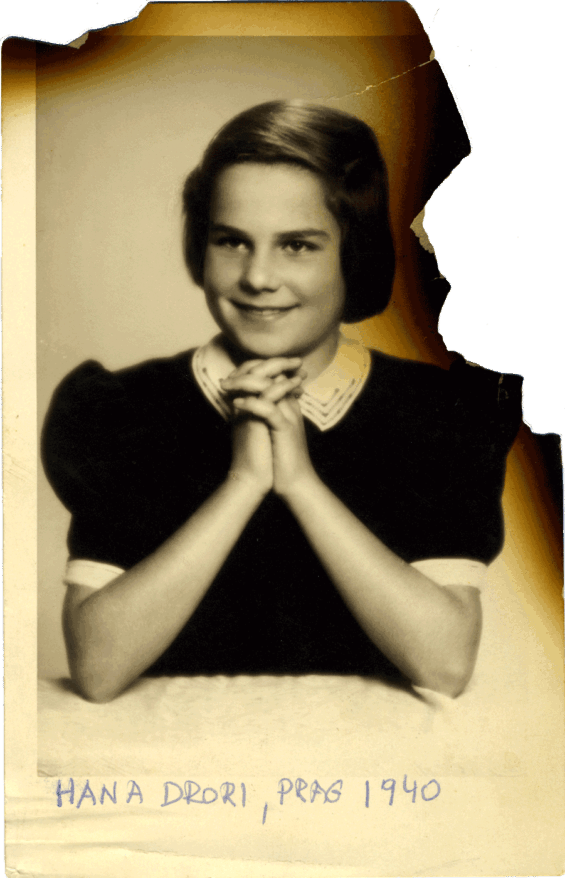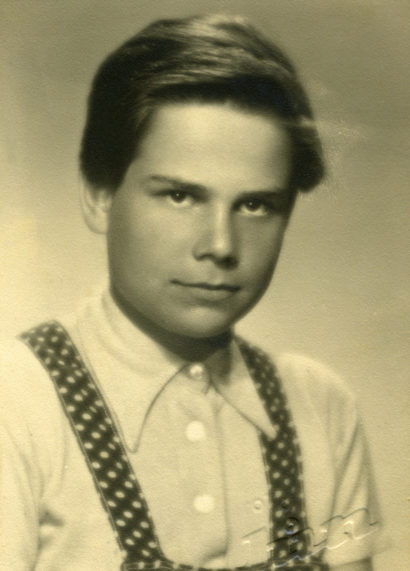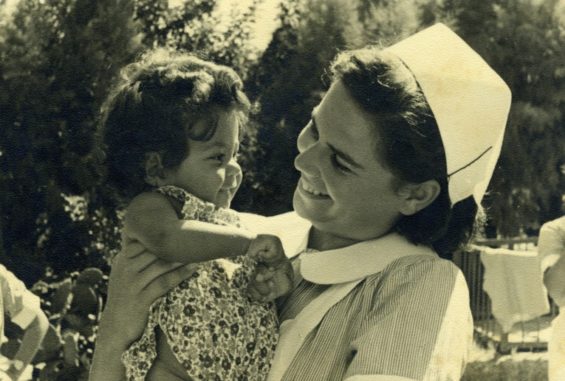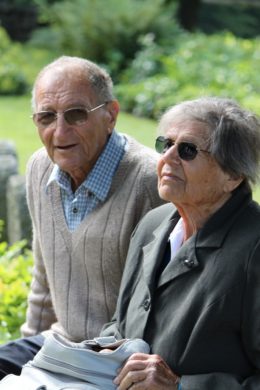Hana Drori
born November 4, 1931
![]()
Hana Pollaková one month after liberation, June 1945 (private collection)
Deported as a Nine-Year-Old
Hana Pollaková grew up near Prague. Her parents divorced when she was young, and she lived with her father. In 1939, the German occupation seized her father’s farm. After that, Hana and her father lived with relatives in Prague. Hana’s mother, with whom she also lived for a time, was deported to the Łódz´ Ghetto in October 1941. Hana’s father was assigned to the “construction detachment” in the Theresienstadt Ghetto. Six months later, in June 1942, nine-year-old Hana saw her father again when she was also deported to the ghetto. At Theresienstadt, children were housed in separate children’s residences. Ella, a staff member in the girls’ residence, married Hana’s father in the ghetto, and took Hana under her wing. Hana was sustained by her friendships with her roommates, by music performances, and by her role in “Brundibár,” a children’s opera.

Hana Pollaková, 1940 (private collection)
In October 1944, Hana, Ella, Hana’s aunt, and her friend Helga were all transferred to Auschwitz-Birkenau. During the selection, Ella claimed that Hana was older than her actual age. Hana was then assigned to the group of women who were supposed to carry out forced labor. Hana‘s aunt was deemed by the SS to be “not fit for labor,” and was killed in the gas chamber immediately on arrival. A week later, Hana, Ella and Helga were transferred to the Oederan subcamp of Flossenbürg in eastern Germany. They worked as forced laborers in a munitions factory. After the horror of Auschwitz, the transfer to Oederan seemed to Hana at first to be a welcome improvement. The prisoners received some food on arrival; the factory was heated; and the lodgings were less crowded. However, soon Hana was again suffering from hunger. During air raids, Hana and the other workers were locked in the factory. After the camp was dissolved, thirteen-year-old Hana, Ella and Helga were returned to Theresienstadt. They were liberated there some time later.
After the end of the war, Hana Pollaková waited in vain for her parents’ return. She first lived with Ella in Prague, and in 1949 emigrated to Israel. She trained as a childcare worker and lived on a kibbutz. After divorcing her first husband, she married Haim Drori. She had six children, of whom two were adopted. Since the 1980s, Hana Drori has been meeting regularly with friends from the Theriesenstadt residence for girls.
![]()
Hana Pollaková during her training as a childcare worker, 1951 (private collection)
![]()
Hana Drori with her husband at the annual meeting of former prisoners at the Flossenbürg Concentration Camp Memorial, 2012 (Flossenbürg Concentration Camp Memorial)


